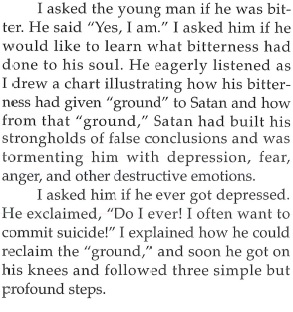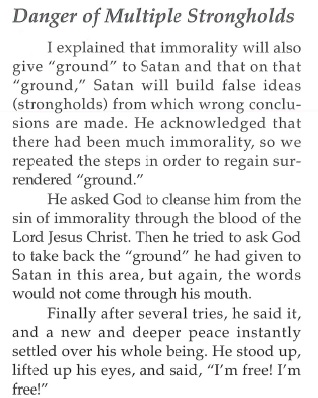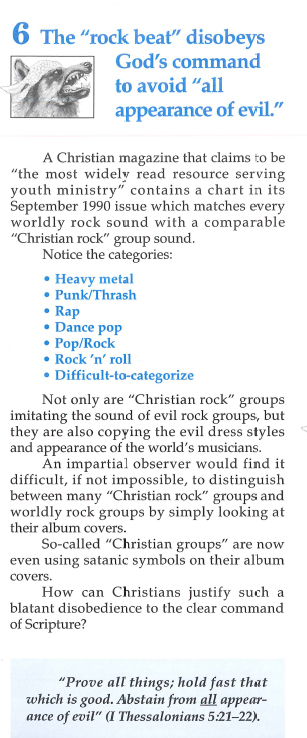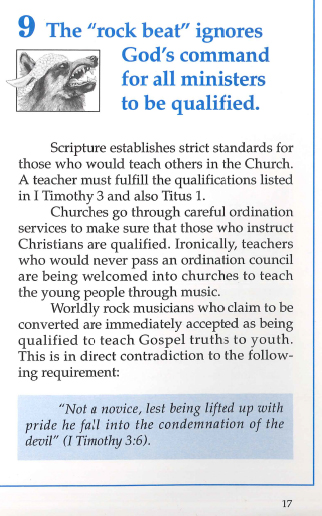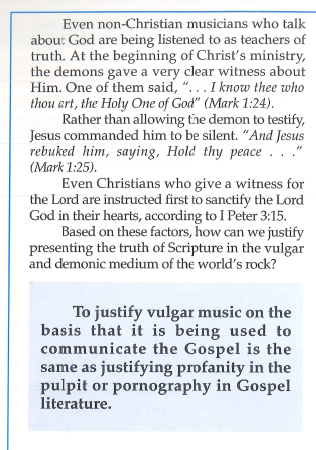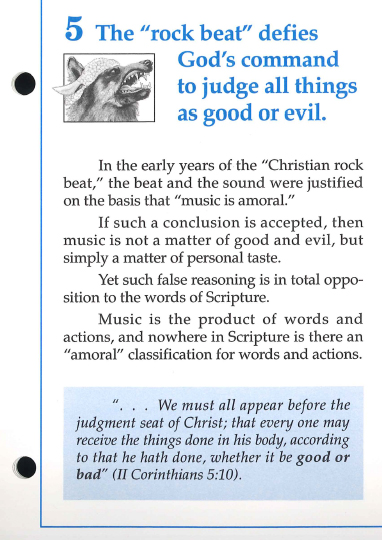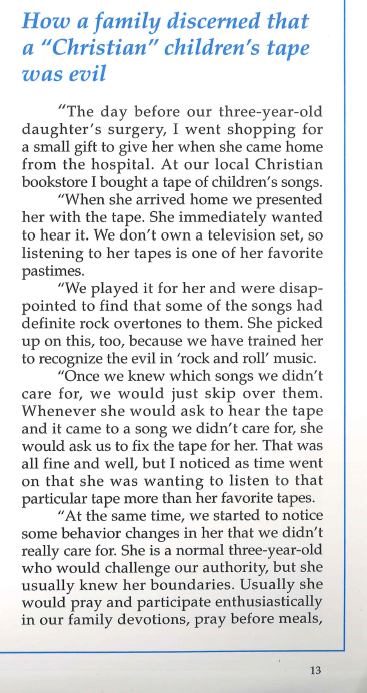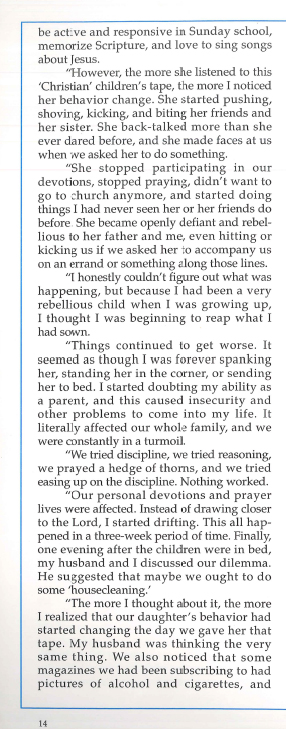There’s been an interesting development regarding the previous post ; Olivia Brodock left a comment explaining the reasons for writing her blog post and what she intended to communicate. It’s worth looking at.
Before getting into today’s topic, I wanted to briefly follow up on something from a previous post about rock music. Gothard had referenced some research that showed rock beats caused problems in lab rats. I’ve managed to track down the original study. It was published in the fall of 1987 in the Bulletin of the New Jersey Academy of Sciences, under the title Neural Plasticity of MUS musculus in Response to Disharmonic Sound. The research was conducted by Gervasia Schreckenburg and Harvey Bird. Several staff and faculty members at Georgian Court University were extremely helpful in tracking down the information for me.
So, what does reading the actual research tell us? Sadly, not much. It seems fairly clear from the study that the mice exposed to “disharmonic” sounds did experience real and physical changes in the brain that had a negative impact on them. However, “disharmonic” is only defined as “musical stimuli with non-synchronized component rhythms.” Beyond that, the article is much more concerned with examining the changes in the rats’ brains than with discussing the exact details of their environment. This is unfortunate. The lack of a more precise definition of the key difference between their control and experimental groups makes the experiment all but impossible to duplicate. Dr. Schreckenburg passed away some years ago, and I have been unable to contact Harvey Bird. The article did mention two graduate students who helped with the research; if I have time I will try to track one of them down and see what they can remember. (Or, if any of you happen to have free time, you could help out! Leave a comment if you’re interested!)
Now, back to redefining reality: twisted definitions from Bill Gothard. Read part 1 here.

Well, the wording is a little bit confusing here, but let’s try to unpack it. If you are feeling guilty, and you are told that you are experiencing “false guilt,” that means…that you’ve done something wrong.
Example: I recently purchased a new cellphone. My old phone was about two inches away from completely dead, and I really did need a new one. My wife did not need a new phone; she repeatedly told me that her phone is fine, and that there was no point in spending the money on a new one when the old one worked just fine.
And yet I felt extreme guilt about it. I felt very strongly that I shouldn’t buy myself a phone until I’d bought her one. Several friends and family members (including my wife) assured me that there was no reason to feel guilty. Thanks to Gothard’s teachings, I tend to always feel like I’ve never done enough for other people, and to feel guilty about getting myself something. This is false guilt. I do not have to feel guilty about buying myself a phone.
But according to Gothard, my false guilt over buying the phone is a sign that I am actually feeling guilty about something else, something far more serious. Apparently I’ve committed some other, greater sin, and my sub conscience knows that my friends won’t excuse that sin, so it transfers the guilt to a less grievous crime.
You see what this does? Gothard sets up a nice little circle of condemnation. If you feel guilty, then you have done something wrong, period. There is no room to realize that you have been taught a lie, or that a preacher has placed the legalistic restrictions on you that are contrary to the freedom Christ gives. Even if you come to understand that you should not feel guilty over a particular action, you are left in a worse position than before. Now you feel guilty, and you don’t even know what you feel guilty about! There is some vague greater sin that is lurking behind your conscience.
Combine this teaching with the impossible list of rules preached by Gothard and you have a dangerous thing indeed. If you don’t quote Scripture while falling asleep, you feel guilty, because that is what a good Christian is supposed to do. And even if somebody manages to show you that God doesn’t judge our relationship with him according to a daily checklist, then you still feel guilty, because you had “false guilt!”
Gothard references Romans 2:15 to back up his definition.
They show that the work of the law is written on their hearts, while their conscience also bears witness, and their conflicting thoughts accuse or even excuse them
As usual, Gothard completely ignores context. Paul is speaking specifically about Gentiles who did not have the law (which, at the time of Paul’s writing, meant they did not have God’s word at all), and is pointing out that even these Gentiles have an understanding of right and wrong.

Flattery can only be flattery if you’re talking about an unchangeable? You can’t flatter someone because of their piano skills, or cooking, or that big deer they shoot? This definition isn’t so much dangerous as it is just odd. Who would think this is a complete definition?

Aside from the fact that this is not what freedom means, I find myself disturbed by how this definition changes the focus of some key Scriptures. Look at John 8:36:
So if the Son sets you free, you will be free indeed.
Using Gothard’s terminology, this verse becomes “So if the Son gives you the power to do what you should, you will have the power to do what you should indeed.” Notice how the focus moves away from what Christ has done for us (He has set us free) onto works (doing what we should do.) This is the very essence of legalism.
What about John 8:32?
And you will know the truth, and the truth will set you free.
“And you will know the truth, and the truth will give you the power to do what you should.”
And let’s not forget the verse that Gothard tacked on to the end:
For, brethren, ye have been called unto liberty; only use not liberty for an occasion to the flesh, but by love serve one another. (Gal. 5:13)
What’s odd is that this verse make no sense with Gothard’s definition. “For, brethren, ye have been called not unto what you want, but the power to do what you should. But don’t use the power to do what you should as an occasion to the flesh, but by love serve one another.”
Again, this is why it is so important that you look up and read for yourself any Scriptures that Gothard references.

Now we get back to guilt trips. Frustration, by Gothard’s definition, is a failure. If you feel frustrated, you have failed.
So are you frustrated that you have to wear a skirt in windy weather? You failed. Are you frustrated that adults are not allowed to leave training center grounds without permission from leaders? You failed. Are you frustrated that your parents paid for you to participate in a program that consists mostly of hard labor that benefits IBLP? (More than ten years later, and that one still ticks me off.) You failed. There is no room to consider that those in leadership may have made poor decisions, or that they might be building their own kingdom from your sweat. You cannot think of those things, because you, by being frustrated, have shown your failure.
Do you begin to see how this teaching is extremely dangerous in the hands of someone willing to take advantage of others?
But let every man prove his own work, and then shall he have rejoicing in himself alone, and not in another. (Gal. 6:4)
So…yeah, basically nothing that relates to his definition. Typical.

I won’t wax eloquent on this one; it’d be better to just refer you to this excellent piece published on Recovering Grace that addresses the problems with this definition (click on “Grace and Faith”). In a nutshell,this definition again moves the focus away from what Christ did for us and to what we must do. Notice that the source of grace is left entirely out of the picture; rather than being about the incredible goodness of God in giving us undeserved favor, it’s simply a “force” that helps us “do things.” Yikes.

I…what? Nothing about pointing a group towards a common goal? Helping each team member to bring their best to the team? Working well with a variety of personality types?
But we request of you, brethren, that you appreciate those who diligently labor among you, and have charge over you in the Lord and give you instruction, 13 and that you esteem them very highly in love because of their work. Live in peace with one another. 14 We urge you, brethren, admonish the unruly, encourage the fainthearted, help the weak, be patient with everyone. (1 Thess. 5:12-14)
Read those verses carefully, and then read Gothard’s definition carefully. Try to find how the two relate. (Hint: they don’t.) I’m not pointing this out because I think my readers have a wrong definition of the word leadership, but because I’m hoping to show how incredibly off-the-wall crazy Gothard sometimes is.

Liberation is actually “the act of setting someone free from imprisonment, slavery, or oppression; release.” Submission means “the action or fact of accepting or yielding to a superior force or to the will or authority of another person.” These are vastly different things.
It’s important to note how extremely passive liberation is with this definition. It’s something that your “divinely appointed authority” allows you. It’s not something you ever fight for, or leave an abusive relationship for. Practically speaking, it’s a list of restrictions that are handed to you. Then you have to find a way to work under those restrictions, regardless of if they are reasonable or not.
I exhort therefore, that, first of all, supplications, prayers, intercessions, and giving of thanks, be made for all men;
2 For kings, and for all that are in authority; that we may lead a quiet and peaceable life in all godliness and honesty. (1 Tim. 2:1,2)
20 bonus points to the person who can find a connection between Gothard’s definition and that Scripture.

Wow! Not only is this definition categorically wrong, it is dangerous. Slander, in case you don’t know, is a false statement that hurts someone’s reputation. “Bill Gothard was fond of playing footsie with young female staff members” is not slander, no matter what my intentions are in making that statement, because its true. “Bill Gothard ate babies as part of his annual retreat in the Northwoods” is slander, because it’s false. (And to all the know-it-alls telling me it’s libel; just read it out loud, and I’m right!)
And if you are in Gothard’s world, guess who gets to decide if you were intending to hurt? Someone in authority, of course. You know, the very people who would be in hot water if you told the truth about abuse or neglect. 
Yep, down means up and up means down. Somebody with a superiority complex doesn’t think they’re superior. Nope, because that would make sense. You see, somebody with a superiority complex actually has an inferiority complex. That’s why we call it a superiority complex.
Excuse me while I go bang my head against a brick wall.

Ok, imagine you take a class and you pay attention most of the time. At the end, you have an average of 92%, worth an A for the class. Yea! That’s pretty good, right?
But did you have success in that class? To determine the answer, we need to look at what you “could have done.” If you had paid attention in the class, you could have gotten 100%. By this form of measurement, you have fallen short by 8%.
What’s the bottom line here? You are never good enough. Your frustration is a sign of your failure. That failure occurred because you didn’t make use of this force that lies within you and gives you the power to do things God’s way. You cannot speak the truth about those in authority over you, those who add to your burdens, because that would be slander. If this makes you angry, then you are sinning. Why can’t you just show deference and do things the right way to please those in authority over you?
You are never good enough. There are a million rules, and 8 steps to overcome this, and 5 principles for that, and 12 truths for becoming that other thing, and you will never do it right and you are not good enough.
